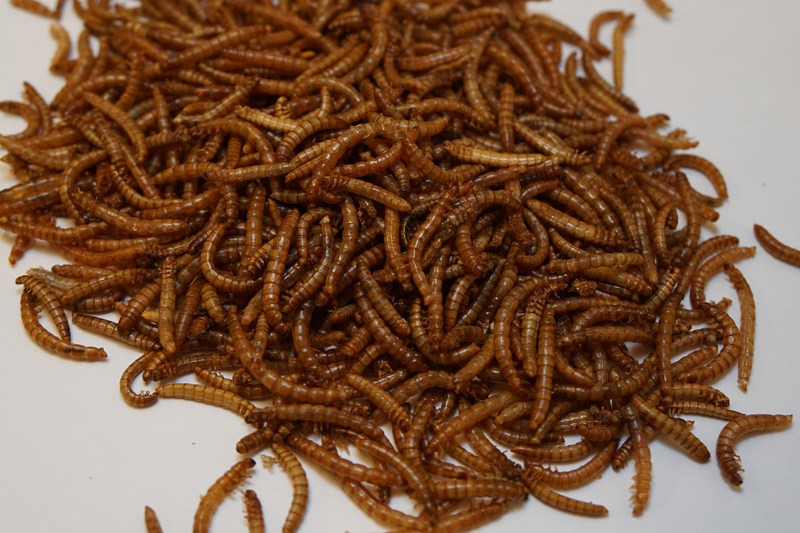Company raises $2.1 million to create sustainable protein for animal feed using insects.
April 10, 2018

Earlier this month, Beta Hatch, a Seattle, Wash.-based company industrializing the production of insects as a sustainable protein for animal feed, closed its seed round of funding, raising $2.1 million.
Seed round investors included Cavallo Ventures, the venture capital arm of Wilbur-Ellis, a San Francisco, Cal.-based leading international marketer and distributor of agricultural products, animal feed and specialty chemicals and ingredients; Element 8 Fund, a Seattle-based angel investor group focused on funding clean tech start-ups; Keiretsu Capital, exclusive worldwide fund partner of the Keiretsu Forum, the world's most active venture investor; NQV8, a Kansas-based equity focused on innovations in pet food, and Frontier Angels, a Montana-based investment network.
"This was one of the largest rounds of fund-raising ever for insect feed in the U.S.," Beta Hatch founder and chief executive officer Virginia Emery said. "Seeing interest and investment from such a wide range of investors and companies is encouraging, and with this round of funding closed, we're very excited to move to the next phase of our business, which is building our pre-commercial facility and continuing to refine our technology and process."
Beta Hatch's focus is not solely inward, however. The company also announced that it has partnered with Texas-based EVO Conversion Systems, a leading black soldier fly (BSF) research group, to learn and apply BSF technology for mass production. In 2016, EVO created The EVO Consortium to cover all aspects of the BSF industry, providing members with more power and synergy to develop innovations. By joining The EVO Consortium, Beta Hatch will have access to EVO's fundamental technologies as well as to other members of the consortium that develop insect-rearing technology and products independently, but in a collaborative environment.
Beta Hatch said it plans to offer a comprehensive rearing workshop through The EVO Consortium to establish production standards for American producers.
"We are very excited to apply our insect ranching technology with other species and to expand our feedstock options by working with black solder fly," Emery said. "Mealworms -- our foundational insect -- grow in a dry production system and can eat a wide range of organic byproducts, but these feedstocks need to be dried first. Black soldier flies are another species grown for feed, but in a wet production system. Our ranch technology has been designed to be species agnostic to accommodate all kinds of insects and maximize their potential for recycling organics in the food system. We are excited to learn more about black soldier flies through this partnership with EVO."
"We are excited to have our first partner in the U.S.," agreed EVO Conversion Systems director of operations Jeffrey K. Tomberlin, who also is a Texas A&M University associate professor and AgriLife research fellow. "Beta Hatch has enthusiasm, passion, drive and a clear dedication to the environment and what the industry represents to the community. This is just the beginning of a long-term partnership where we stand shoulder to shoulder, moving forward to address concerns of food waste and protein production in both the U.S. and abroad."
Founded in 2015, Beta Hatch is pioneering the insect farming industry through an innovative fusion of engineering and entomology. With a combination of trade-secret processes, patent-pending equipment and superior genetic stock, Beta Hatch said it is developing the tools needed to grow insects on an industrial scale to disrupt plant and animal nutrition.
Founded in 1921, the Wilbur-Ellis companies are leading international marketers and distributors of agricultural products, animal feed and specialty chemicals and ingredients. By developing strong relationships, making strategic market investments and capitalizing on new opportunities, the Wilbur-Ellis companies have continued to grow the business, with sales now of more than $3 billion.
You May Also Like


.png?width=300&auto=webp&quality=80&disable=upscale)
